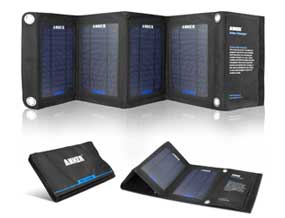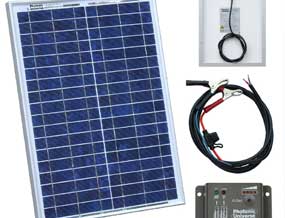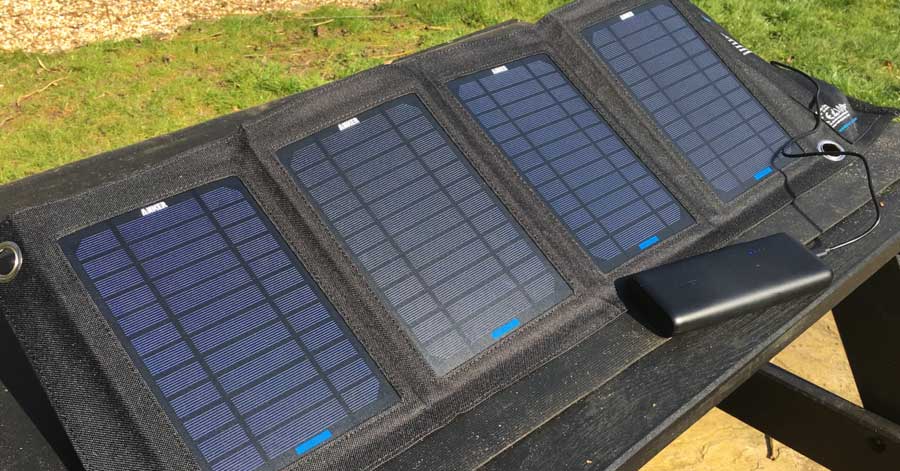I won’t bore you with the details of how solar panels work but basically, you set them up and they generate energy that you can instantly use or store with batteries for use later, whilst there is, of course, an initial setup cost which varies from £40 to £4000+ once setup they provide energy for free! Take that Rip off UK Energy Costs… However… (and it’s a big one), at this relatively low scale, they’re generally not going to save you any money in the short term as it will take many years to offset the cost of the panels themselves; however, depending on the option you go for it very well could longterm.
For most people, it’s about providing:
- An emergency/backup option: Should something happen in the world or near you, it’s nice to know you have another power option.
- A convenient option for off-grid power: Whether that’s camping, hiking, campervanning, a shed, garden office, or similar, these can provide decent power levels to cook, heat a kettle, or run some LED lights without the need for mains electricity or running a noisy/smelly engine/generator.
- A genuinely useful home energy solution for those who want to be less reliant on the grid.
Here are your options:
1) Portable Solar Panels for small electronics or to charge batteries up (£20-£100)

These are ideal as part of an emergency grab bag or just for festivals, camping trips, bikers etc, the benefits are as follows:
- Foldable & Portable (ideal for a backpack, laptop bag etc)
- Ready to go, plug and charge.
- Normally several USB slots for multiple device charging
Good versions:
2) Large Portable Solar for Campervans, Camping, Backup Power etc (Prices from £500-£3000)
These are elite products which are extremely useful, versatile, built to last and if you need the power to run things like AirFryers, Kettles etc will be a god send!
- Anker C1000 Portable Power Station with 400W solar panel
- Anker F2000 Portable Power Station with 200W solar panel
These are very similar to #3 below, however, anyone can use and set these up without any hassle, they’re really easy to use and they have everything all setup in a lovely sturdy box (some even with wheels), they’re not cheap at first glance but the latest generations (both above examples are exactly that) offer the latest battery technology which means they’re good for 10+ years without concerns and when you price everything you get inside the box it works out about the same as #3 would cost you for a similar setup.
3) Fixed solar panels for rooms/small garages etc (£50-£1000)
- Ideal for camper vans, garages, boats etc.
- You will need various accessories to get it to work, we suggest a starter kit if this is new to you
- Add your own battery pack to this and you’ve got a great unit for a more permanent structure at relatively low cost.
- You will need some skills / be good at reading the manual to setup
Good versions:
4) Solar PV for your house (£4000+)
With a large upfront cost of £4000-£8000 for a 4-9KW setup, you get the added benefit of reduced electricity costs. Often you can pay off the price you paid for your panels within 7-22 years (depending on when you buy, what panels etc), making them a fairly obvious choice for many home owners.
Ensure you get 3 quotes from 3 legit companies ensuring all of them are part of Microgeneration Certification Scheme (MCS).




























